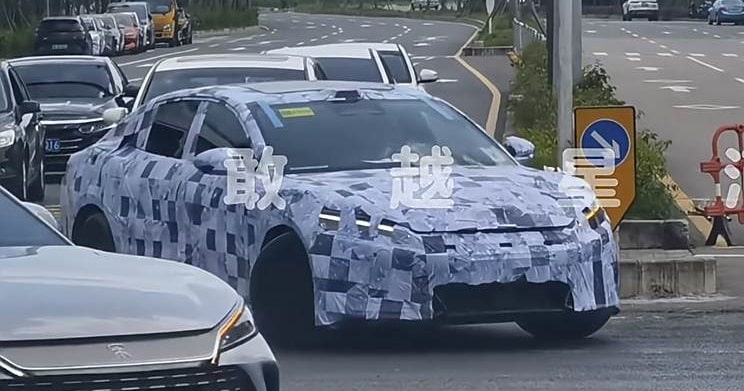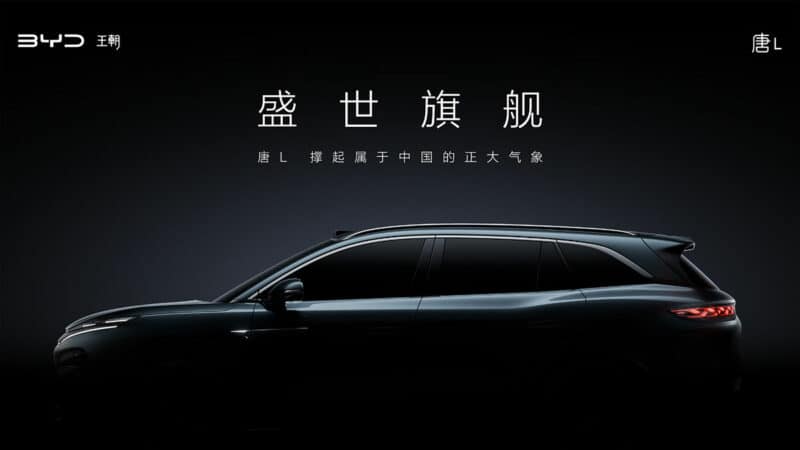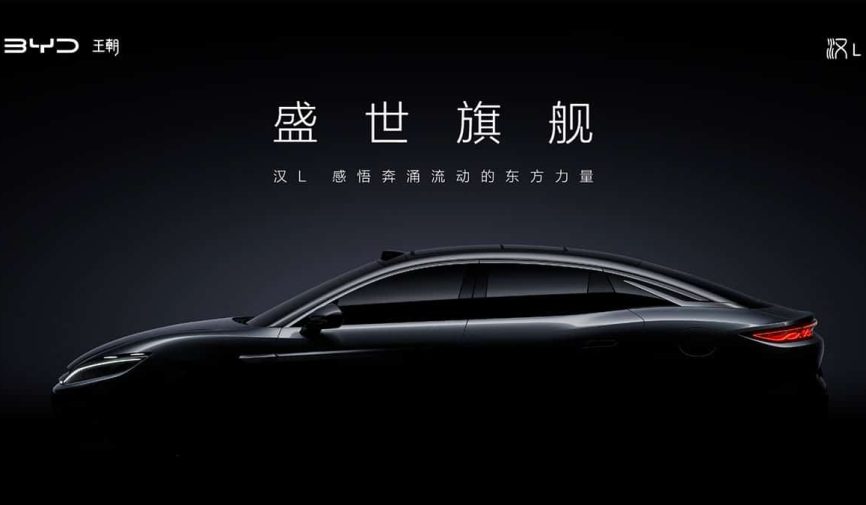BYD previews Han L, likely with DM 5.0 PHEV powertrain and the latest Blade battery
BYD teased the Han L sedan under its mass-market brand. This is the first official mention of BYD’s new flagship sedan, although CarNewsChina published the first spy shots of the car in August last year.
- 广告
BYD also revealed a teaser for Tang L SUV, without providing further details or specs. From the released images, we can see both EVs feature lidar on the top of the windshield to support the ADAS system.

BYD currently sells Han sedans and Tang SUVs with both all-electric and PHEV powertrains. CarNewsChina expects Han L and Tang L will offer the same options, with the plug-in hybrid system to be the latest BYD’s DM 5.0 PHEV technology.
- 广告

The current Han and Tang are available in fourth-generation DM-i and DM-p hybrid system variants. DM stands for dual motors. DM-i, where I stands for intelligent, is usually for FWD vehicles focusing on economy and fuel efficiency. DM-p (p stands for performance) is usually for AWD vehicles focusing on performance and sporty driving.
The all-electric variants of Han L and Tang L will be equipped with the latest generation blade battery 2.0 LFP, providing a range of up to 1,000 km CLTC, according to the Chinese automotive magazine IT Home.
BYD Han EV (see all specs) is a 5-seater with dimensions 4995/1910/1495 mm (length/width/height) with a 2,920 mm wheelbase. The curb weight is 2,250 kg, and the top trim has an 85.4 kWh battery pack good for the 610 km CLTC range.
- 广告
The EV sedan has a single electric motor with 380 kW (510 hp) and 710 Nm peak torque. The EV starts at 179,800 yuan (24,630 USD) in China.
BYD Tang EV SUV (see all specs) is also a 5-seater with dimensions 4900/1950/1725 mm (length/width/height) and a wheelbase of 2820 mm. The cub weight is 2,560 kg, and the top trim has a 108.8 kWh battery, good for the 635 km range under CLTC conditions.
The electric SUV has an almost identical powertrain, being AWD with a total power of 380 kW (510 hp) and 700 Nm peak torque. Tang starts at 219,800 yuan (30,110 USD) in China.
BYD Han sedan sold 260,000 units, while BYD Tang SUV sold 150,000 in 2024 globally.
BYD sold 514,809 vehicles in December, bringing the 2024 total to 4,272,145 units. Of these, 41.5%, or 1,764,992 units, were all-electric vehicles (BEVs).


